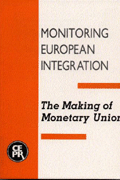Studies in this week’s Hutchins Roundup find that unemployment adversely affects newborn babies, foreclosures exacerbated the housing bust, and more.
Want to receive the Hutchins Roundup as an email? Sign up here to get it in your inbox every Thursday.
Unemployment adversely affects newborn babies
Using data from 4.8 million sibling births across England from 2003 to 2012, Elisabetta De Cao of the London School of Economics, and Barry McCormick and Catia Nicodemo of the University of Oxford find that newborn health is procyclicala one percentage point increase in the unemployment rate leads to a 1.3% increase in the incidence of low birth weight babies and a 1.4% increase in preterm babies. Unemployment affects infants’ health by increasing maternal stress, maternal smoking and drinking, and delays in seeking prenatal care, they say. They also find that, during downturns, fertility is relatively higher among women from less distressed areas, who tend to have healthier babies, leading to previous findings that unemployment improves birth outcomes.
Foreclosures exacerbated the housing bust
Adam Guren of Boston University and Timothy McQuade of Stanford University find that foreclosures amplified the 2006-2013 housing bust by creating an imbalance of house buyers and sellers. Foreclosures ruin homeowners’ credit, preventing them from purchasing another house, and default-induced losses lead lenders to reduce mortgage credit, both of which decrease the supply of homebuyers. Using county-level national data, the authors estimate that the lower number of buyers in the housing market accounted for 32.3% of the decline in aggregate home prices from 2006 to 2013. They suggest that policies that directly address the imbalance of supply and demand, such as purchases of distressed homes and equity injections into the financial sector to boost lending, are highly effective, while principal reductions, like those pursued by the Home Affordable Modification Program (HAMP), are less so.
Macroprudential response to bubbles should depend on the level of indebtedness
In the aftermath of the Global Financial Crisis, many countries introduced macroprudential policies aimed at limiting financial imbalances, like countercyclical capital buffers and loan-to-value ratios for mortgages. Nina Biljanovska and Lucyna Gornicka of the IMF and Alexandros Vardoulakis of the Federal Reserve Board of Governors investigate whether policy ought to do more when debt buildups are accompanied by an asset price bubble. They show that that the optimal response is non-monotonic: when debt levels are low or moderate, macroprudential policy should accommodate the bubble. But, when debt is elevated, policy should lean against the bubble more aggressively, suggesting that the effects of asset overvaluations are amplified in the presence of elevated credit imbalances.
 Source: Wall Street Journal
Source: Wall Street Journal
“…The center of gravity for economic policy is not monetary policy. And what do I mean by that? Monetary policy, in my judgment, did not cause this [economic slowdown]. And so trade policy, probably to a lesser extent but some extent also immigration policy—no ability to grow the workforce—uncertainty about those are probably where the center of gravity is…. Monetary policy absolutely has a role to play, but I’m cognizant that if there continues to be uncertainty or even greater tension on those other policies, we’ll have to deal with it, but we’re not driving the economic scenario. What we have to do is assess it and try to adapt monetary policy to deal with it the best we can,” says Robert Kaplan, President of the Dallas Federal Reserve
“If there’s policy uncertainty that can be reversed in a 24-hour period—that’s not the case with monetary policy. We make a change; it has long lags. These other policies can affect business behavior very rapidly. And I think when you’re seeing rapid changes in those policies, it makes me want to stand off, observe more, let more cards be dealt, and let this play out a little bit more, and maybe even have a little bit more patience. For me in a risk-management point of view, when you’ve got this much volatility on the other policies, that makes me want to just take a breath a little bit and some time.”











Commentary
Hutchins Roundup: Unemployment affects newborn health, impact of foreclosures, and more
September 5, 2019